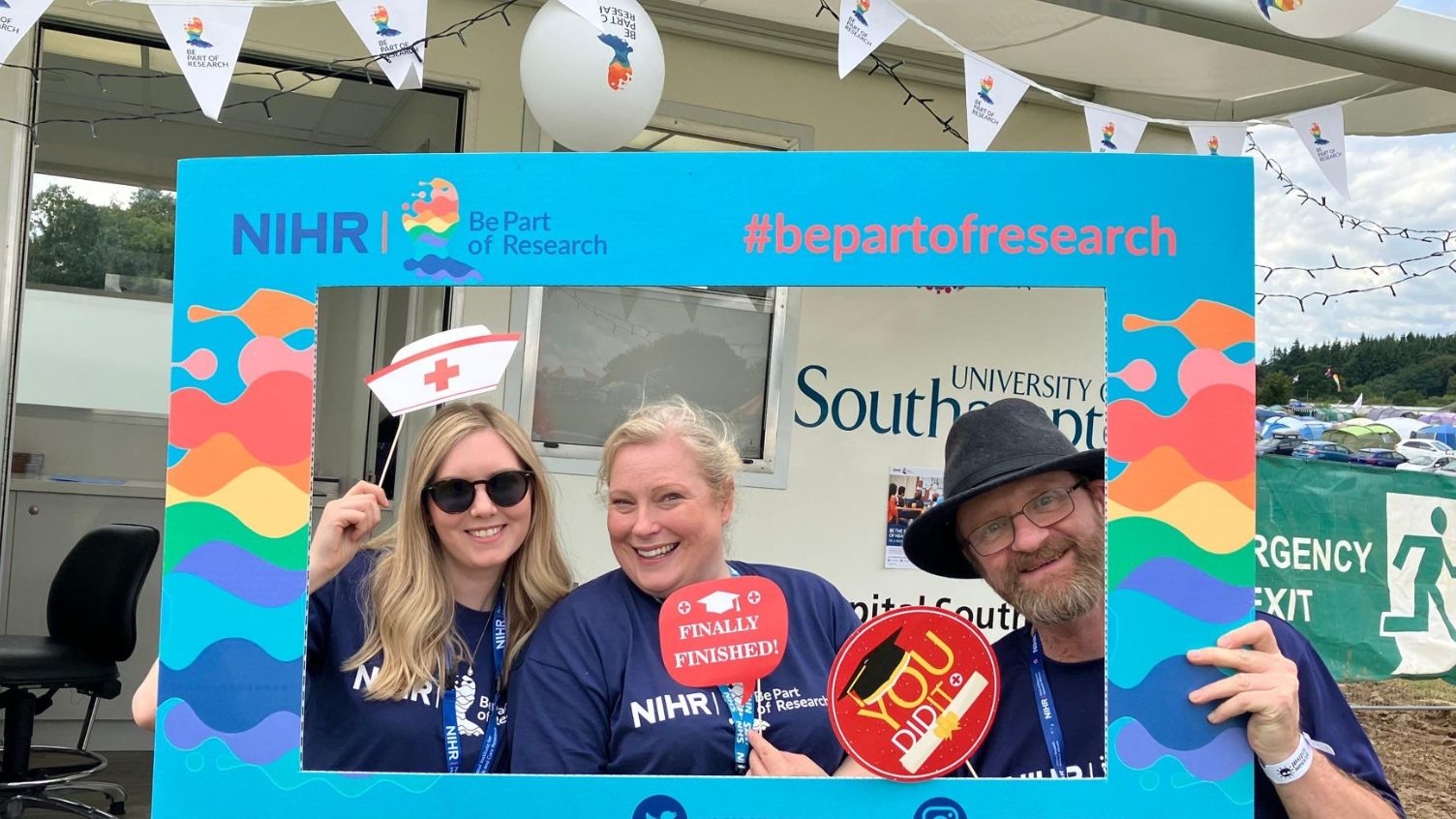The unexpected benefits of taking part in research
- 23 August 2022
- 3 min read
Colin Wells from Exmouth got involved in two clinical research studies thanks to doctors at the town’s Claremont Medical Practice, one of which markedly improved his health.
Colin participated in SAFER (Screening for Atrial Fibrillation with ECG to Reduce stroke) and ALL-HEART (Allopurinol and cardiovascular outcomes in patients with ischaemic heart disease). Both are funded by National Institute for Health Research (NIHR) and supported by the Clinical Research Network South West Peninsula.
As Colin explains, participating in the latter has led to a substantial improvement in his quality of life: "I saw the doctor 5 years ago in August, and that was when she asked if I would like to go on this trial for Allopurinol, which is essentially a drug for gout, to see if it could help with certain kinds of heart disease. I said yes, absolutely no problem.
"Prior to that, for many years I had experienced problems with my right knee. It was problematic and painful when cycling, walking, doing gym exercise etc, and I'd been using straps on a fairly regular basis. I'd been to the doctor a couple of times about it and been put on codeine phosphate - co-codamol - as and when required. I got a hundred at a time and they would last about 18 months. Once I'd started taking them, I used to go out on my bike and my knee would be a little bit 'catchy', but to a lesser extent.
"To put this in context, 22 years ago I was standing on top of Mount Kilimanjaro, 6000 metres up, on my 60th birthday. I had a very active life, I was a civil engineer and inspector in the docks at Devonport, and where I worked there were 120 steps from the dockside down to the bottom of the dry dock. I used to go up and down them like a yoyo, at least half a dozen times a day with no problem whatsoever. Although I suppose with hindsight, even then once in a while it would sort of twinge.
"Anyway, about 5 or 6 weeks after starting the trial, we went to visit my wife's sister in Austria and while I was there they said, we've laid on a walk for you, up in the mountains. I agreed to try it, but I took my straps just in case. We went out and walked for several hours and I climbed 5 or 600 metres, absolutely no problems, I just couldn't believe it. For the first time in over 20 years I did not experience any discomfort whatsoever! I can honestly say that even in the past five years my knees have never bothered me again. I don't even know where the straps are now, they're in a drawer somewhere.
"Is my experience a pure coincidence? Or was it a benefit of the Allopurinol? I'm convinced in my own mind that it was."
Colin's doctors agreed and he is continuing to take the drug outside the study, an ongoing benefit of his participation in addition to the hugely valuable contribution he has made to improving care and treatments for others in future.
Dr Lisa Gibbons, Primary Care Lead for the NIHR Clinical Research Network South West Peninsula and a GP Partner at Claremont Medical Practice, was the one who offered Colin the opportunity to participate in the trials.
She said: "Do I think the Allopurinol is the cause of the improvement in Mr Wells' knee problems? Yes, I think it is likely - he may have had undiagnosed gout.
"Research evidence shows that people who take part in clinical trials have improved health outcomes. It is fantastic that Mr Wells has had such a great experience on this trial, and as always our thanks go to him and all the other patients who are willing to participate in these studies."
If you are interested in volunteering for health and care research, visit https://bepartofresearch.nihr.ac.uk/
ALL-HEART (https://www.allheartstudy.org/) is led by the University of Dundee and run from the Medicines Monitoring Unit (MEMO), University of Dundee / Ninewells Hospital, Dundee, working with other university and NHS centres in Scotland and England.
SAFER is led by the University of Cambridge (https://www.safer.phpc.cam.ac.uk/).


